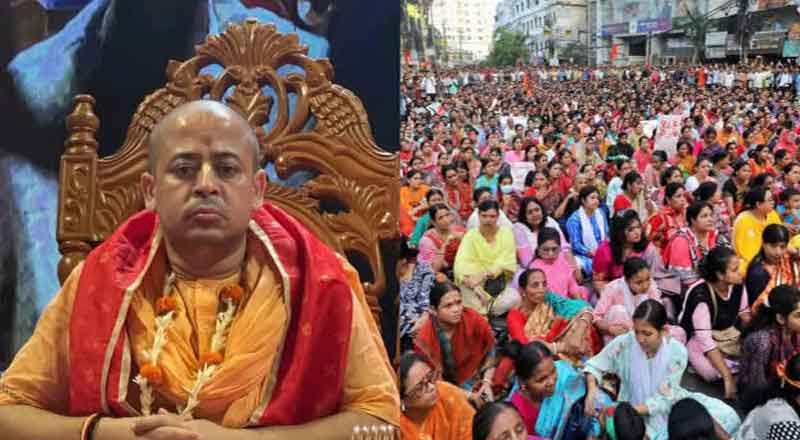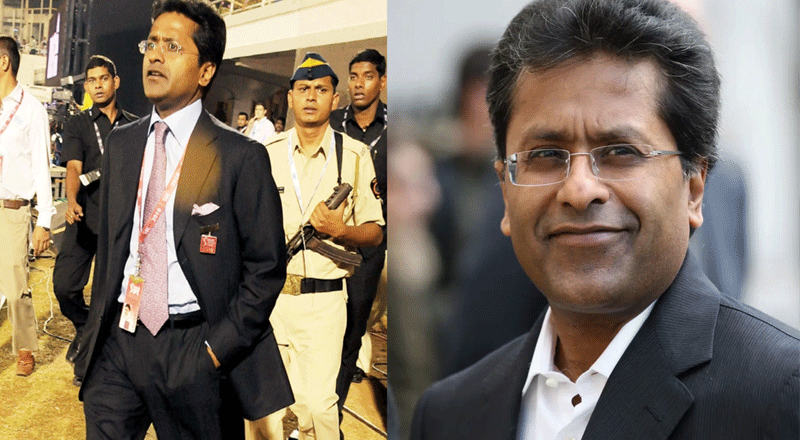Arrest of ISKCON Monk and Rising Tensions
The arrest of ISKCON monk Chinmoy Krishna Das in Bangladesh on sedition charges has ignited a heated debate about the safety of minorities and religious freedom in the country. The incident, which led to violent protests, has drawn international attention, with India expressing “deep concern” over the arrest and the subsequent denial of bail to Das. This development has brought the spotlight on the International Society for Krishna Consciousness (ISKCON) and its activities in Bangladesh, amid allegations of radicalism and communal tension.
While Bangladeshi officials, including Press Secretary Shafikul Alam, have sought to reassure that Hindus are “safe,” the controversy has exposed underlying tensions within the nation.
Government Response: Assurance and Denial of Ban
In response to the uproar, Shafikul Alam, speaking on behalf of Chief Advisor Muhammad Yunus, stated emphatically that the government has no plans to ban ISKCON. Alam dismissed claims of widespread insecurity among Hindus as part of an “industrial-level disinformation campaign.” He assured that the situation is under control and that Das will receive a fair trial.
The government also emphasized its proactive efforts, with the Chief Advisor visiting temples and meeting Hindu leaders to address community concerns. A High Court in Bangladesh rejected calls for a suo motu ban on ISKCON, signaling that judicial authorities are not inclined to restrict the organization’s activities.
However, the arrest and accusations of “radical activities” against ISKCON have left lingering questions about the government’s ability to balance law enforcement with protecting religious minorities.
‘Das Will Receive a Fair Trial’
“We will ensure that Das receives a fair trial,” stated Shafikul Alam, press secretary to Bangladesh’s Chief Advisor. On Thursday, the High Court of Bangladesh declined to issue an order to ban ISKCON within the country, citing that the authorities had already taken appropriate measures to address the matter.
Earlier, Supreme Court lawyer Md Monir Uddin had submitted newspaper reports to a High Court bench, urging the court to issue a suo motu (voluntary) ban on ISKCON’s activities in Bangladesh. The petition claimed that ISKCON was engaged in “radical activities” that posed a threat to national security and incited communal unrest, according to a Dhaka Tribune report.
While addressing the issue, Alam commented, “I am not familiar with the trial proceedings, but there will be no ban on ISKCON in Bangladesh.”
India’s Reaction: A Diplomatic Tightrope
India’s Ministry of External Affairs (MEA) issued a strongly worded statement expressing concern over the arrest and highlighting ongoing attacks against Hindus and other minorities in Bangladesh. The MEA underscored documented instances of violence, including arson, looting, and desecration of temples, and urged Bangladesh to uphold the safety and rights of its minority communities.
Bangladesh, however, criticized India’s involvement, calling it an interference in internal matters. Alam reiterated that Bangladesh refrains from commenting on India’s domestic issues and expects reciprocal restraint. This diplomatic friction underscores the delicate balance between India’s commitment to protecting global Hindu interests and maintaining strong ties with Bangladesh.
Global Perspectives: A Broader Context of Minority Rights
The arrest has also caught the attention of international observers. Former US Commission on International Religious Freedom (USCIRF) Commissioner Johnnie Moore described the plight of minorities in Bangladesh as an “existential threat.” During his campaign, US President-elect Donald Trump raised concerns over the state of minorities in Bangladesh, signaling potential future scrutiny from Washington.
These developments indicate that the issue extends beyond South Asia, reflecting broader concerns about the erosion of minority rights in an increasingly polarized world.
Underlying Issues: Safety of Hindus in Bangladesh
The controversy highlights deeper, systemic challenges in ensuring minority rights in Bangladesh. Despite official assurances, incidents of communal violence and discrimination persist. Attacks on Hindu properties and places of worship, coupled with delayed or inadequate action against perpetrators, have created a sense of vulnerability within the community.
Activists argue that the government must go beyond rhetoric and ensure justice and protection for minorities, not just in high-profile cases but across the board. Failure to address these concerns could weaken Bangladesh’s social fabric and tarnish its international image as a secular, inclusive nation.
A Need for Balanced Action
The arrest of ISKCON monk Chinmoy Krishna Das has become a flashpoint for broader debates about religious freedom, minority safety, and the role of the state in regulating religious organizations. While the Bangladeshi government insists that Hindus are safe and ISKCON will not be banned, the controversy underscores the need for tangible actions to back these assurances.
For India, the challenge lies in balancing its advocacy for Hindu rights abroad with respecting the sovereignty of neighboring nations. Meanwhile, global stakeholders will continue to monitor the situation, emphasizing the importance of safeguarding religious freedoms as a cornerstone of democracy.
As Bangladesh navigates these turbulent waters, its handling of the ISKCON case and the safety of Hindus will serve as a litmus test for its commitment to pluralism and justice in the face of growing domestic and international scrutiny.
(With inputs from agencies)





